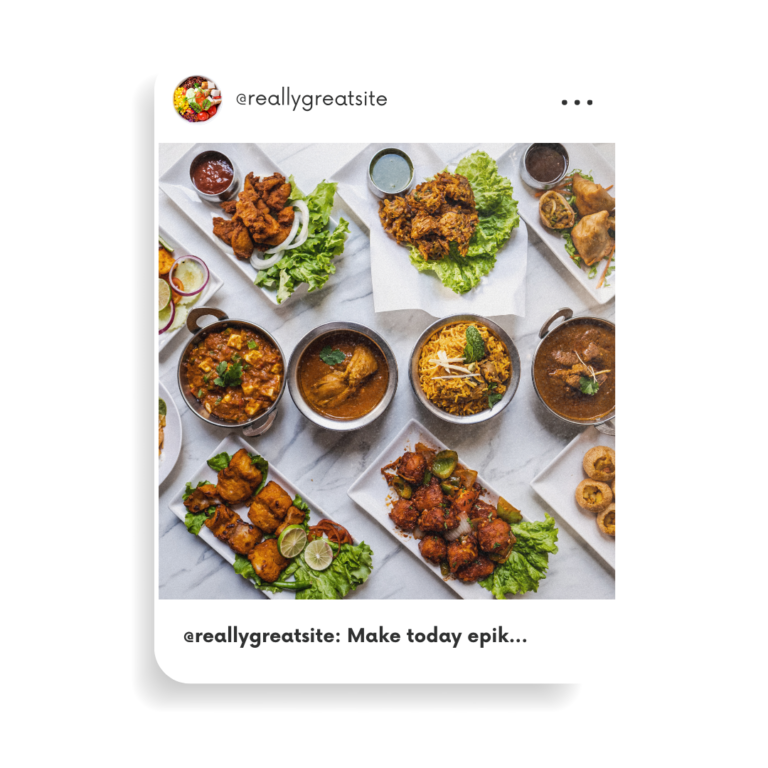Table of Contents
In today’s digital age, having a strong online presence is crucial for restaurants looking to attract local customers. Local SEO (Search Engine Optimization) is a powerful tool that helps businesses appear in search results when potential customers look for services in their area. For restaurants, this means being found when someone searches for “best pizza near me” or “seafood restaurant in Vancovuer.” In this comprehensive guide, we will explore the ins and outs of local SEO and how expert copywriting can significantly boost your restaurant’s visibility and customer base.

Understanding Local SEO
Definition
Local SEO refers to the process of optimizing your online presence to attract more business from relevant local searches. These searches take place on Google and other search engines, often with local intent. It’s about ensuring your restaurant appears in local search results, map results, and business directories.
Benefits
- Increased Visibility: Local SEO helps your restaurant appear in local search results, increasing your chances of being seen by potential customers.
- Customer Reach: Attract more customers who are searching for restaurants in your area.
- Competitive Edge: Stand out from competitors by appearing in top local search results.
Understanding Local SEO
Definition
Local SEO refers to the process of optimizing your online presence to attract more business from relevant local searches. These searches take place on Google and other search engines, often with local intent. It’s about ensuring your restaurant appears in local search results, map results, and business directories.
Benefits
- Increased Visibility: Local SEO helps your restaurant appear in local search results, increasing your chances of being seen by potential customers.
- Customer Reach: Attract more customers who are searching for restaurants in your area.
- Competitive Edge: Stand out from competitors by appearing in top local search results.

Key Components
- Google My Business: A critical component that helps manage your restaurant’s online presence across Google, including Search and Maps.
- Local Citations: Online mentions of your restaurant’s name, address, and phone number (NAP) on directories and websites.
- Reviews and Ratings: Customer reviews play a significant role in local SEO, influencing search rankings and customer trust.
Why Local SEO Matters for Restaurants
Increased Visibility
By optimizing your restaurant for local SEO, you ensure that your business appears in relevant local searches. This increased visibility is crucial for attracting new customers who are looking for dining options in your area.
Customer Reach
Local SEO helps you reach customers who are searching for restaurants nearby. By appearing in local search results, you tap into a highly targeted audience actively looking for the services you offer.
Competitive Edge
With many restaurants vying for customers, local SEO gives you a competitive advantage by making your restaurant more visible and accessible to potential diners.
Optimizing Google My Business Profile
Setting Up
Creating a Google My Business (GMB) profile is the first step in local SEO. Ensure your restaurant’s name, address, and phone number are accurate and consistent with your website and other online listings.
Verifying
Verify your GMB profile to unlock all features and ensure your restaurant appears in local search results. Google may send a postcard with a verification code to your business address.
Managing
Regularly update your GMB profile with accurate information, including business hours, photos, menu updates, and special offers. Respond to customer reviews to show engagement and build trust.
Keyword Research for Local SEO
Tools
Use keyword research tools like Google Keyword Planner, Moz, and SEMrush to identify keywords and phrases your potential customers are using to find restaurants in your area.
Strategies
Focus on long-tail keywords that include your location, such as “best Italian restaurant in [Your City]” or “vegan cafe near [Your Neighborhood].” These specific phrases help attract highly targeted traffic.
Implementing
Incorporate these keywords naturally into your website content, meta descriptions, headers, and image alt texts. Avoid keyword stuffing, as it can negatively impact your rankings.
On-Page SEO Techniques
Meta Tags
Optimize meta titles and descriptions with local keywords to improve click-through rates and search visibility. Include your restaurant’s name and location in the meta title.
Headers
Use H1, H2, and H3 tags to structure your content and include relevant local keywords. This helps search engines understand the context of your content and improves readability.
Content Optimization
Ensure your website content is informative, engaging, and optimized with local keywords. Highlight your unique selling points, such as signature dishes, special events, and customer reviews.
Local SEO and Content Marketing
Blogging
Create a blog to share engaging content related to your restaurant, such as recipes, cooking tips, and local food trends. This not only attracts visitors but also boosts your local SEO.
Social Media
Promote your blog posts and other content on social media platforms to increase visibility and drive traffic to your website. Engage with your audience by responding to comments and messages.
Reviews
Encourage satisfied customers to leave positive reviews on Google, Yelp, and other review sites. Positive reviews enhance your online reputation and influence local search rankings.
On-Page SEO Techniques
Meta Tags
Optimize meta titles and descriptions with local keywords to improve click-through rates and search visibility. Include your restaurant’s name and location in the meta title.
Headers
Use H1, H2, and H3 tags to structure your content and include relevant local keywords. This helps search engines understand the context of your content and improves readability.
Content Optimization
Ensure your website content is informative, engaging, and optimized with local keywords. Highlight your unique selling points, such as signature dishes, special events, and customer reviews.
Local SEO and Content Marketing
Blogging
Create a blog to share engaging content related to your restaurant, such as recipes, cooking tips, and local food trends. This not only attracts visitors but also boosts your local SEO.
Social Media
Promote your blog posts and other content on social media platforms to increase visibility and drive traffic to your website. Engage with your audience by responding to comments and messages.
Reviews
Encourage satisfied customers to leave positive reviews on Google, Yelp, and other review sites. Positive reviews enhance your online reputation and influence local search rankings.

Creating Engaging Content for Restaurants
Blog Posts
Write blog posts about your restaurant’s story, the inspiration behind your menu, and any special events or promotions. Share behind-the-scenes content to connect with your audience.
Menus
Ensure your menu is easily accessible and regularly updated on your website. Highlight popular dishes, seasonal specials, and dietary options to attract a diverse audience.
Specials and Events
Promote your restaurant’s specials and events through blog posts, social media, and email newsletters. Use engaging copy and high-quality images to capture attention.
Leveraging User-Generated Content
Reviews
Showcase positive customer reviews on your website and social media. Respond to reviews to show appreciation and address any concerns promptly.
Photos
Encourage customers to share photos of their dining experience on social media and tag your restaurant. Share these user-generated photos on your own platforms to build community and trust.
Testimonials
Feature customer testimonials on your website to build credibility and attract new customers. Genuine testimonials can be a powerful tool in influencing potential diners.
Building Local Citations
What Are Citations
Local citations are online mentions of your restaurant’s name, address, and phone number. These can appear on local business directories, websites, and social media platforms.
Importance
Citations help search engines verify the accuracy of your business information and improve your local search rankings. Consistent citations across the web enhance your restaurant’s credibility.
How to Get Them
List your restaurant on popular local directories such as Yelp, TripAdvisor, and Zomato. Ensure your NAP information is consistent across all platforms to avoid confusion and improve SEO.
Optimizing Restaurant Website for Local SEO
Mobile Optimization
Ensure your website is mobile-friendly, as a significant number of local searches are conducted on mobile devices. Use responsive design to provide a seamless user experience on all devices.
Speed
Optimize your website’s loading speed to prevent users from bouncing off due to slow performance. Use tools like Google PageSpeed Insights to identify and fix speed issues.
User Experience
Design your website with a focus on user experience. Easy navigation, clear calls-to-action, and engaging content can keep visitors on your site longer and improve your search rankings.

Creating Engaging Content for Restaurants
Blog Posts
Write blog posts about your restaurant’s story, the inspiration behind your menu, and any special events or promotions. Share behind-the-scenes content to connect with your audience.
Menus
Ensure your menu is easily accessible and regularly updated on your website. Highlight popular dishes, seasonal specials, and dietary options to attract a diverse audience.
Specials and Events
Promote your restaurant’s specials and events through blog posts, social media, and email newsletters. Use engaging copy and high-quality images to capture attention.
Leveraging User-Generated Content
Reviews
Showcase positive customer reviews on your website and social media. Respond to reviews to show appreciation and address any concerns promptly.
Photos
Encourage customers to share photos of their dining experience on social media and tag your restaurant. Share these user-generated photos on your own platforms to build community and trust.
Testimonials
Feature customer testimonials on your website to build credibility and attract new customers. Genuine testimonials can be a powerful tool in influencing potential diners.
Building Local Citations
What Are Citations
Local citations are online mentions of your restaurant’s name, address, and phone number. These can appear on local business directories, websites, and social media platforms.
Importance
Citations help search engines verify the accuracy of your business information and improve your local search rankings. Consistent citations across the web enhance your restaurant’s credibility.
How to Get Them
List your restaurant on popular local directories such as Yelp, TripAdvisor, and Zomato. Ensure your NAP information is consistent across all platforms to avoid confusion and improve SEO.
Optimizing Restaurant Website for Local SEO
Mobile Optimization
Ensure your website is mobile-friendly, as a significant number of local searches are conducted on mobile devices. Use responsive design to provide a seamless user experience on all devices.
Speed
Optimize your website’s loading speed to prevent users from bouncing off due to slow performance. Use tools like Google PageSpeed Insights to identify and fix speed issues.
User Experience
Design your website with a focus on user experience. Easy navigation, clear calls-to-action, and engaging content can keep visitors on your site longer and improve your search rankings.
Local Link Building Strategies
Local Partnerships
Collaborate with local businesses and organizations to create mutually beneficial partnerships. This can include hosting events, cross-promotions, and featuring each other on your websites.
Sponsorships
Sponsor local events, sports teams, or community initiatives to increase your restaurant’s visibility and earn backlinks from event websites and local news outlets.
Guest Blogging
Write guest posts for local blogs and publications to showcase your expertise and attract local traffic. Include links back to your restaurant’s website to boost SEO.
Managing Online Reviews and Reputation
Responding to Reviews
Respond promptly and professionally to all reviews, whether positive or negative. Thank customers for their feedback and address any issues raised to show your commitment to customer satisfaction.
Encouraging Positive Feedback
Encourage satisfied customers to leave reviews by providing excellent service and occasionally reminding them to share their experiences online. Offer incentives such as discounts for leaving reviews.
Using Social Media for Local SEO
Platforms
Utilize platforms like Facebook, Instagram, and Twitter to connect with your local audience. Share updates, promotions, and engaging content to keep your followers informed and engaged.
Strategies
Use local hashtags, geotags, and location-based features to increase your visibility among local users. Engage with local influencers and community groups to expand your reach.
Engagement
Interact with your followers by responding to comments and messages, and encourage user-generated content by hosting contests or featuring customer posts.
Implementing Local Schema Markup
What Is Schema
Schema markup is a code you add to your website to help search engines understand your content better. For restaurants, it can include details like menu items, hours of operation, and customer reviews.
Benefits
Implementing schema markup can improve your search visibility, increase click-through rates, and provide potential customers with more detailed information directly in search results.
How to Implement
Use tools like Google’s Structured Data Markup Helper to add schema markup to your website. Focus on local business and restaurant-specific schema to enhance your local SEO.
Local SEO Tools and Resources
Top Tools
- Google My Business: Manage your online presence across Google.
- Moz Local: Optimize and manage local listings.
- SEMrush: Conduct keyword research and track SEO performance.
- BrightLocal: Comprehensive local SEO and citation management.
Tracking and Analyzing Local SEO Performance
Metrics
Monitor key metrics such as organic traffic, search rankings, and conversion rates to evaluate the effectiveness of your local SEO strategy.
Tools
Use tools like Google Analytics, Google Search Console, and SEMrush to track and analyze your local SEO performance. Regularly review reports to identify areas for improvement.
Reporting
Create regular reports to track progress, highlight successes, and identify opportunities for optimization. Use these insights to adjust your strategy and achieve better results.
Adapting to Local SEO Trends
Voice Search
Optimize your content for voice search by focusing on natural language and long-tail keywords. Voice search is becoming increasingly popular for local searches.
Mobile Search
Ensure your website is mobile-friendly and optimized for local search to capture the growing number of mobile users looking for nearby dining options.
Video Content
Incorporate video content into your local SEO strategy. Videos can engage users, provide valuable information, and improve your search visibility.
Case Studies: Successful Local SEO for Restaurants
Examples
Explore case studies of restaurants that have successfully implemented local SEO strategies. Analyze their approaches, results, and key takeaways.
Key Takeaways
Learn from these success stories to understand what worked well and how you can apply similar strategies to your own restaurant’s local SEO efforts.
Common Mistakes in Local SEO
Avoiding Pitfalls
Avoid common local SEO mistakes such as inconsistent NAP information, neglecting online reviews, and failing to optimize for mobile search.
Best Practices
Follow best practices such as keeping your GMB profile updated, encouraging customer reviews, and regularly monitoring your local SEO performance.
FAQs about Local SEO for Restaurants
How can local SEO benefit my restaurant? Local SEO increases your restaurant’s visibility in search results, attracts local customers, and gives you a competitive edge.
What are local citations? Local citations are online mentions of your restaurant’s name, address, and phone number on directories and websites. They help improve your local search rankings.
How do I optimize my Google My Business profile? Ensure your GMB profile has accurate information, verify your business, and regularly update it with photos, business hours, and customer reviews.
Why are online reviews important for local SEO? Online reviews influence search rankings and customer trust. Positive reviews can boost your restaurant’s reputation and attract more customers.
What tools can help with local SEO? Tools like Google My Business, Moz Local, SEMrush, and BrightLocal can assist with keyword research, citation management, and performance tracking.
How can I improve my restaurant’s website for local SEO? Focus on mobile optimization, website speed, user experience, and content that includes relevant local keywords.
Conclusion: Enhancing Your Restaurant’s Online Presence
Enhancing your restaurant’s local SEO is a powerful way to attract more local customers, increase your visibility, and stay ahead of the competition. By implementing expert copywriting techniques and following best practices, you can create engaging content that resonates with your audience and drives business growth. Stay up-to-date with local SEO trends and continuously optimize your strategy to ensure long-term success.
- All Projects
- Marketing in Restaurant
- Back
- Web design
- Social Media for restaurant
- Ai in restaurant
- Augmented reality in restaurant







